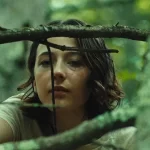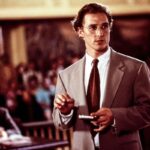Sundance 2017: Frantz, by David Bax
Francois Ozon’s Frantz is set, at least initially, in small town Germany in the immediate aftermath of the First World War. That this defeated nation is already a breeding ground for the nationalism that will give rise to Nazism years later is an obvious parallel to our current climate here in America; when the father of a slain soldier declares, “Every Frenchman is my son’s murderer,” it’s clear there’s little room for nuance in this atmosphere. But Ozon has something else on his mind, crafting a classical tale of yearning and tragedy that is particularly well suited to his strengths and tendencies.
Frantz is the name of the aforementioned deceased German soldier. His fiancee, Anna (Paula Beer), has moved in with Frantz’s parents while fielding unwanted marriage offers from other men in town. It’s a dreary life for everyone until things are changed in ways both wanted an unwanted by the arrival of a Frenchman named Adrien (Pierre Niney) who at first speaks to no one but visits Frantz’s grave daily.
Anna may be the protagonist but much of the weight rests on the shoulders of Adrien as the story’s catalyst and pervasive enigma. Niney is more than up to the task, his talents as an actor buoyed by his long, sad, Buster Keaton face with expressive eyes that are particularly well suited to Ozon’s crisp black and white photography.
Color is not absent from the film entirely, though. It first floods into the frame in the form of flashbacks to Adrien and Frantz’s friendship before the war. Soon, though, it begins to pop up more frequently and suddenly, as a representation of any positive memories of Frantz. Then, the color largely disappears after the abrupt shift at the halfway mark. It’s a basic trick that, admittedly, a film school student could have thought up but its effectiveness is undeniable.
As mentioned, Frantz is, to a significant degree, a tragedy. It shows us that, once a loved one is gone from us, they can never be replaced even though those of us left behind will never stop trying. But there’s hope here, as well, in Ozon’s insistence that simply listening and understanding can lead to healing.





























